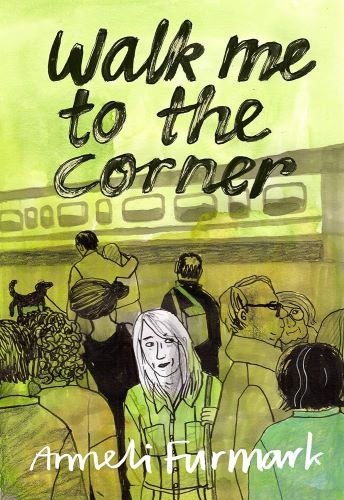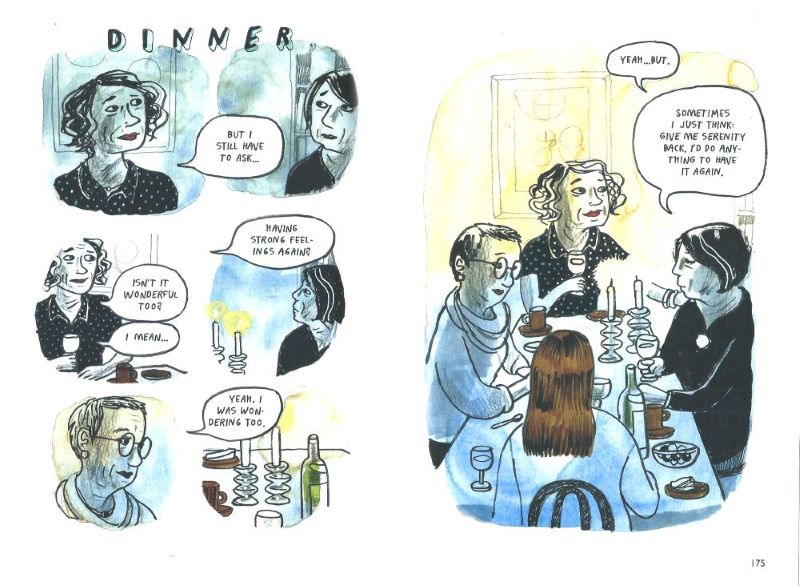

There is a commercial American novel in my bisexual collection that ended up being a pretty disappointing read - and yet I keep it on my bookshelf because it’s about a bisexual grandma and I’ve never read another book about a bisexual grandma. Bisexuality in pop culture, whether seductive and hedonistic or sanitised and selling “representation”, is usually relegated to youth.
Elise, the protagonist of Walk Me to the Corner, is not a grandma - she’s in her fifties, very happily married to a man and has two adult children - but this graphic novel is very deliberately about falling in love later in life, about experiences of older people.
“When I was young, I saw older people like they were some sort of joke. [...] Like they were kind of cute when they started dating each other [...] but kind of silly,” Elise tells her son. She compares it to couples you see in movies, where there’s the main couple, the real couple, who are always young and beautiful, and then the secondary couple, which is there for comic relief. Else understands that in a film, she would be the comic relief. But in this story, she’s the main character.
Her romance is with Dagmar, a woman she meets at a cultural event, and who is, like Elise, also married. Neither of them want to leave their spouses but they’re also irresistibly drawn to each other. When they start seeing each other, Else tells her husband and Dagmar tells her wife, but it’s very tentative non-monogamy that puts a strain on both their marriages, and makes for a very gentle, melancholy read.
Year of publication:
2021
Country of publication:
Sweden
Page count:
226
English translation:
Yes
Would I recommend this book?
Yes
Dagmar and Elise live in different parts of Sweden and rarely get a chance to see each other. Their relationship is split between the occasional weekends in different cities and cheap hotels, and between constant texting, sneaky phone calls, sending each other songs and funny pictures.
Despite all the difficulty surrounding their relationship, they can’t keep apart. Elise is surprised to learn that feelings don’t mellow with age, that being in love feels just as magnificent and devastating as when she was young, and that even the drama stays exactly the same. (She tells her son that when you’re older you don’t stop wondering, “Does she love me? Should I play hard to get?” and he replies, with a smile, “I was sort of hoping these things would go away.”)
Her bisexuality is treated very casually - this isn’t a coming out story, the genders of her partners don’t matter because they’re eclipsed by their circumstances. But it doesn’t go unacknowledged, either - having a queer relationship makes Elise stop assuming her children are straight, and her friends want to know whether being with a woman is different to being with a man, whether the pressure of beauty ideals and ageism is lessened.
This particular scene, Else meeting up with her friends, was my favourite part of the book. They chat about her and Dagmar, about passion versus stability, about beauty standards and being condescended to because they’re older women. It’s earnest and impactful and made me long for more stories about older women.

The art is soft and expressive, with visible pen/brush strokes and a muted colour palette. The writing is both conversational and poetic and they come together to create a novel that at the same time feels deeply grounded (in the mundane everyday, in convincing characters) and wonderfully atmospheric.
Furmark is a skilled, seasoned writer and artist, and I’m happy to make Walk Me to the Corner a permanent part of my book collection - not just because it happens to cover a demographic I rarely encounter in bisexual books, but also because of its wonderful literary value.
